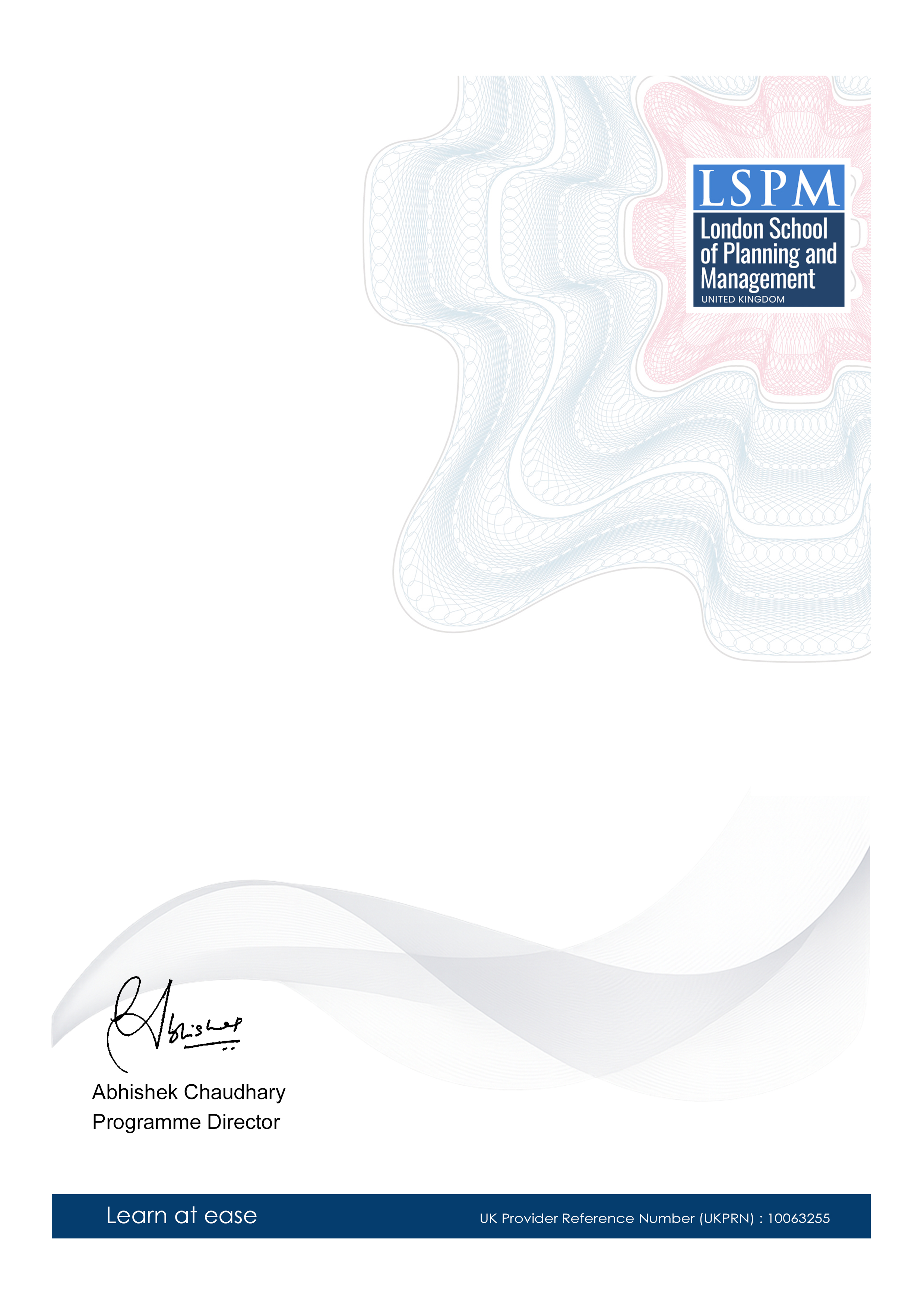Certificate Programme in Impact Investing for Humanitarian Resilience
-- viewing nowThe Certificate Programme in Impact Investing for Humanitarian Resilience is designed for individuals seeking to understand and apply impact investing principles to support humanitarian efforts. The programme provides a comprehensive overview of impact investing, including its history, key concepts, and strategies.
6,502+
Students enrolled
GBP £ 149
GBP £ 215
Save 44% with our special offer
About this course
100% online
Learn from anywhere
Shareable certificate
Add to your LinkedIn profile
2 months to complete
at 2-3 hours a week
Start anytime
No waiting period
Course details
• Financial Analysis for Impact Investing • Risk Management in Humanitarian Resilience • Impact Measurement and Evaluation • Sustainable Development Goals and Impact Investing • Legal and Regulatory Framework for Impact Investing
• Impact Investing Strategies • Social Entrepreneurship and Innovation • Impact Investing in Emerging Markets • Impact Investing and Philanthropy
• Impact Investing and Climate Change • Impact Investing and Gender Equality • Impact Investing and Healthcare • Impact Investing and Education
• Case Studies in Impact Investing • Practical Applications of Impact Investing • Networking and Career Development in Impact Investing • Capstone Project in Impact Investing for Humanitarian Resilience
Career path
Certificate Programme in Impact Investing for Humanitarian Resilience
The Certificate Programme in Impact Investing for Humanitarian Resilience is a comprehensive course that equips professionals with the necessary skills to analyze and invest in socially responsible and sustainable projects. The programme covers topics such as impact measurement, risk management, and deal structuring, preparing graduates for careers in impact investing and social finance.
Career Roles
Impact Investing Analyst
An impact investing analyst evaluates potential investments for their social and environmental impact, as well as their financial returns. They conduct due diligence on investment opportunities, analyze financial statements, and assess the risk-return profile of each investment.
Social Finance Manager
A social finance manager oversees the investment of funds in socially responsible and sustainable projects. They develop investment strategies, manage portfolios, and monitor performance to ensure that investments align with the organization's social and financial goals.
Skills Demand
Impact Measurement
Knowledge of impact measurement frameworks and methodologies is essential for professionals in this field. Graduates should be able to assess the social and environmental impact of investments using industry-standard tools and techniques.
Financial Analysis
Strong financial analysis skills are required to evaluate investment opportunities and manage portfolios. Graduates should have a solid understanding of financial statements, risk management, and investment analysis techniques.
Salary Range
Impact Investing Analyst
£30,000 - £60,000
Social Finance Manager
£50,000 - £100,000
Job Market Trends
Growing Demand for Impact Investing Professionals
As more investors seek to align their investments with their values, the demand for impact investing professionals is increasing. Graduates of this programme can expect to find opportunities in a variety of sectors, including finance, philanthropy, and social enterprise.
Focus on Sustainable Development Goals
The United Nations' Sustainable Development Goals (SDGs) provide a framework for addressing global challenges such as poverty, inequality, and climate change. Graduates of this programme can contribute to the achievement of these goals by investing in projects that align with them.
Entry requirements
- Basic understanding of the subject matter
- Proficiency in English language
- Computer and internet access
- Basic computer skills
- Dedication to complete the course
No prior formal qualifications required. Course designed for accessibility.
Course status
This course provides practical knowledge and skills for professional development. It is:
- Not accredited by a recognized body
- Not regulated by an authorized institution
- Complementary to formal qualifications
You'll receive a certificate of completion upon successfully finishing the course.
Why people choose us for their career
Loading reviews...
Frequently Asked Questions
Course fee
- 3-4 hours per week
- Early certificate delivery
- Open enrollment - start anytime
- 2-3 hours per week
- Regular certificate delivery
- Open enrollment - start anytime
- Full course access
- Digital certificate
- Course materials
Get course information
Earn a career certificate

